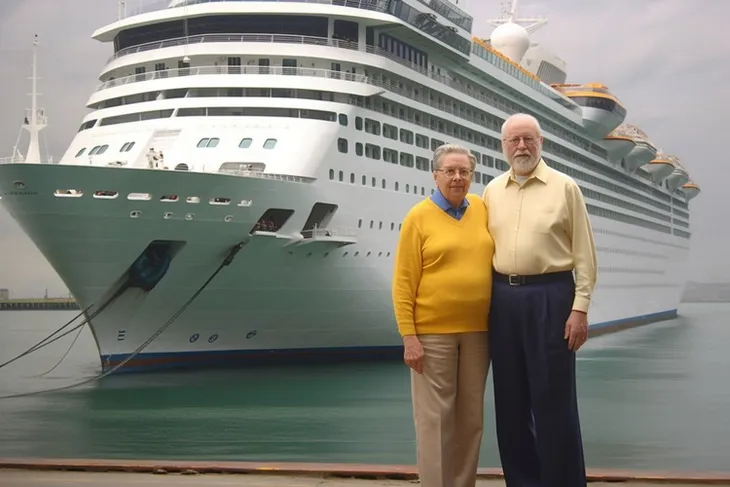Flexible Ocean Travel Planning for the 65+ Demographic
Ocean travel offers unique opportunities for seniors to explore the world while enjoying comfortable accommodations and comprehensive services. For travelers aged 65 and above, cruise planning requires specific considerations including health facilities, accessibility features, and flexible booking options. Understanding how cruise pricing works, especially regarding last-minute opportunities, can help mature travelers make informed decisions about their ocean adventures while managing travel budgets effectively.

Cruise travel has become increasingly popular among seniors, offering a perfect blend of adventure, comfort, and convenience. For the 65+ demographic, ocean voyages provide an excellent way to visit multiple destinations without the hassle of constant packing and unpacking. Modern cruise ships are well-equipped with medical facilities, accessible cabins, and age-friendly amenities that cater specifically to mature travelers’ needs.
Understanding What Last-Minute Cruise Deals Mean for Seniors
Last-minute cruise deals typically refer to bookings made within 60-90 days of departure, though some cruise lines consider anything within six months as relatively short notice. For seniors, these deals can represent significant savings, but they come with trade-offs. While the reduced prices are attractive, last-minute bookings often mean limited cabin selection, fewer dining preferences, and potentially less favorable flight arrangements. Senior travelers should weigh the cost savings against the reduced flexibility in planning and preparation time.
The definition of “last-minute” varies among cruise lines, with some offering wave sales in January for cruises departing later in the year. Understanding these industry terms helps seniors navigate the booking process more effectively and set realistic expectations about availability and pricing.
Being Flexible with Your Travel dates to Maximize Savings
Flexibility with travel dates can unlock substantial savings for senior cruise passengers. Shoulder seasons, typically spring and fall, offer the best combination of pleasant weather and reduced pricing. Avoiding peak holiday periods, school vacation times, and major events at destination ports can result in savings of 20-40% compared to high-season rates.
Repositioning cruises, where ships move between seasonal regions, present exceptional value opportunities. These voyages often feature more sea days and fewer port stops, which many seniors appreciate for the relaxed pace and onboard activities. Being open to different departure ports within driving distance can also yield significant savings, as some ports offer more competitive pricing than others.
Why Cruise Lines Offer Steep Discounts Close to Departure
Cruise lines operate on a revenue management model similar to airlines and hotels. Empty cabins generate no revenue once the ship sails, making it financially beneficial to offer substantial discounts rather than sail with unsold inventory. The high fixed costs of operating a cruise ship mean that even deeply discounted fares contribute to covering operational expenses and generate some profit margin.
Additionally, cruise lines factor in onboard spending when pricing last-minute deals. Senior passengers often spend on specialty dining, beverages, shore excursions, and spa services, making them valuable customers even at reduced cabin rates. The cruise industry also uses these deals to fill specific cabin categories or sailing dates that have lower initial demand.
Sometimes Great Last-Minute Deals Are Rare but Good Offers Do Appear
While significant last-minute cruise discounts do exist, they are not guaranteed and depend on various factors including destination popularity, ship capacity, and seasonal demand. Seniors should maintain realistic expectations and avoid waiting too long for deals that may never materialize. The best approach involves monitoring prices regularly and being prepared to book when a suitable offer appears.
Certain routes and times of year are more likely to produce last-minute deals. Caribbean cruises during hurricane season, Alaska cruises in shoulder months, and repositioning voyages typically offer the best opportunities for discounted fares. However, popular routes during peak seasons rarely see significant price reductions close to departure.
| Cruise Line | Typical Last-Minute Discount | Booking Window | Average Cost Range |
|---|---|---|---|
| Royal Caribbean | 15-30% off | 30-90 days | $800-2,500 per person |
| Norwegian | 20-35% off | 45-75 days | $700-2,200 per person |
| Carnival | 10-25% off | 30-60 days | $600-1,800 per person |
| Princess | 15-40% off | 60-120 days | $900-3,000 per person |
| Celebrity | 20-45% off | 45-90 days | $1,200-3,500 per person |
Prices, rates, or cost estimates mentioned in this article are based on the latest available information but may change over time. Independent research is advised before making financial decisions.
Successful cruise planning for seniors involves balancing flexibility with personal preferences and health considerations. While last-minute deals can provide excellent value, the peace of mind that comes with advance planning often outweighs potential savings. Seniors should consider travel insurance, especially for last-minute bookings, and ensure all necessary documentation is current and easily accessible. The key to successful ocean travel planning lies in understanding personal priorities, maintaining realistic expectations about deals, and being prepared to act quickly when suitable opportunities arise.




